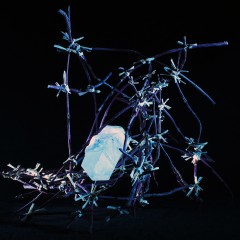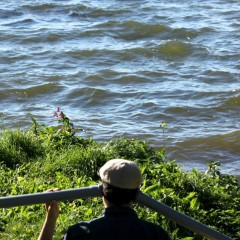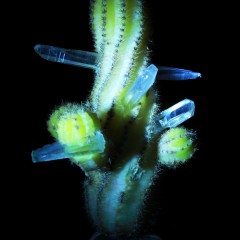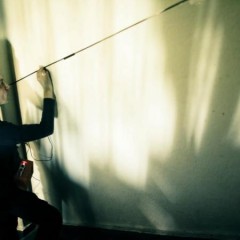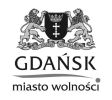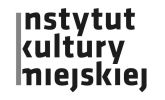Maciej Chodziński + Krzysztof Topolski aka ARSZYN
Selbstassemblierung / Self-assembly
video, sound, objects, site-specific installation, 2014
If paradise is the state of ultimate and perfect symmetry, the history of the ‘big bang’ resembles that of ‘paradise lost’ (…) the result is the varied universe of broken symmetry that now surrounds us.
John Barrow & Joseph Silk, The Left Hand of Creation
Right after the Big Bang, the Universe was formless, deprived of form and content. However, that blissful state of symmetry was quickly disturbed. The Universe – dark, simple and devoid of suffering – began to solidify and acquire shape. Symmetry and balance were disturbed, what began was an unrelenting march of matter and energy towards heavier chemical elements. Heterogeneities in the density of gases, like germs of crystallisation on a cosmic scale, became the centres of gravitation, which began to attract the surrounding matter. Stars came into being, which spat out heavy elements from their cores, giving rise to planetary systems. In the course of time, their material cooled off and solidified in the form of crystals and particles of increasing complexity. Thus, a foundation was created from which life could emerge, and some find life to be the natural destination of the cycles of self-organising chemical reactions.
It is not the Evil Demiurge, as it would seem, who is responsible for creating the world in the form that we know but the process called self-organisation. It is its fault that complexity and structure could emerge from the primordial formlessness. Such varied phenomena as turbulence of liquids, growth of crystal bodies and neural networks stem from the tendency of physical systems to the unprompted creation of new states of complexity.
During this year’s NARRACJE, the historical Chemistry Auditorium of the Gdańsk University of Technology will host the screening of a film which makes an attempt at an audiovisual depiction of the process of self-organisation – the limitless creativity of nature leading to the birth of overly complicated structures, including the conscious beings that are able to observe and judge the Universe.
Maciej Chodziński (b. 1981), lives and works in Warsaw.
Maciej Chodziński deals with painting, graphic art, video, objects and installations. Initiator and co-founder of the independent artistic magazine “Krecha”. Founder of projects Shouldn’t Have Been Born or Earthworks, which he carries out with Maciek Salamon.
Graduate of the Faculty of Graphic Design of the Academy of Fine Arts in Gdańsk (2008) and the Faculty of Philosophy at the University of Gdańsk (2005). With the group “Krecha” he received two awards Storm of the Year by “Gazeta Wyborcza” (2008, 2009); he was nominated for the Geppert Award in painting (2009). Received two nominations for the Award for Young Artists of the City of Gdańsk (2008, 2009). His works have been presented at numerous exhibitions in Poland and abroad.
Krzysztof Topolski aka ARSZYN (b. 1973), lives and works in Gdańsk.
Electro-acoustic improviser, creator of sound art projects, drummer, curator. The key concepts of his practice are noise and soundscape. Interested in investigations in the field of percussion and live electronic, improvised and electro-acoustic music; he is a composer working with computers, deals with sound installations and field recordings. He organises presentations and lectures devoted to contemporary and acoustic music, ecology and sound art; runs workshops. Curator of the festival Soundplay and the cycle of workshops Dźwiękowiska at the CCA Łaźnia in Gdańsk. He has released his music with such labels as Sangoplasmo, Post_Post, Nefryt, Monotype, Audiotong, Sqrt, Lado Abc, Plg, Konkretourist, Bółt.
In 2012-2013, he carried out projects Museum of Sounds at the National Museum in Cracow, Arszyn Emigrant at the Museum of Emigration in Gdynia, Perspektiven/Perspektywy reinterpretations and hommage to the Polish Radio Experimental Studio and Studio WDR für Elektronische Musik in Cologne, Dortmund and Düsseldorf in Germany.


